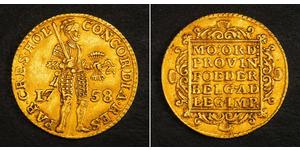[ 2322] CORINTHIA, Corinth. Pseudo-autonomous issue. Bronze As (24mm , 7.60 gm.), 34-31 B.C. Q. Caecilius Niger and C. Heius Pam, duoviri. Head of Aphrodite right, hair pulled back in ponytail, wearing pearl necklace. L • CAECIL • NIGR/ C • HEIO P AM (AM ligate) above, II VIR in exergue, Bellerophon on Pegasus flying right, holding spear in right hand and preparing to strike the Chimaera standing left below. Reference: RPC I 1128 var. (ethnic on obv.); Amandry VIc (unlisted dies); cf. BCD Corinth 329; BMC 496-7 var. (same); cf. Lanz 97, lot 267 The Corinth mint was active throughout the 5th and 4th Centuries, except for for periods during the Peloponnesian War, when her hostile attitude toward Athens may have restricted her supply of silver bullion. The output of staters and drachms increased dramatically in the second half of the 4th Century, probably in connection with Timoleon's successful intervention in Sicilian affairs, commencing 344 B.C. Corinth was occupied by the forces of Ptolemy I of Egypt from 308-306 B.C., and her silver coinage ceased soon after. She joined the Achaean League in the 3rd Century, but later opposed Rome and was utterly destroyed by the consul L. Mummius in 146 B.C. Provided with certificate of authenticity. CERTIFIED AUTHENTIC by Sergey Nechayev, PhD - Numismatic Expert The slaying of the Chimera When he arrived in Lycia, the Chimera was truly ferocious, and he could not harm the monster even while riding on Pegasus. He felt the heat of the breath the Chimera expelled, and was struck with an idea. He got a large block of lead and mounted it on his spear. Then he flew head-on towards the Chimera, holding out the spear as far as he could. Before he broke off his attack, he managed to lodge the block of lead inside the Chimera's throat. The beast's fire-breath melted the lead, and blocked its air passage. The Chimera suffocated, and Bellerophon returned victorious to King Iobates. Iobates, on Bellerophon's return, was unwilling to credit his story. A series of daunting further quests ensued: he was sent against the warlike Solymi and then against the Amazons who fight like men, whom Bellerophon vanquished by dropping boulders from his winged horse; when he was sent against a Carian pirate, Cheirmarrhus, an ambush failed, when Bellerophon killed all sent to assassinate him; the palace guards were sent against him, but Bellerophon called upon Poseidon, who flooded the plain of Xanthus behind Bellerophon as he approached. In defense the palace women sent him and the flood in retreat by rushing from the gates with their robes lifted high, offering themselves, to which the modest hero replied by withdrawing. Iobates relented, produced the letter, and allowed Bellerophon to marry his daughter Philonoe, the younger sister of Anteia, and shared with him half his kingdom, with fine vineyards and grain fields. The lady Philonoe bore him Isander, Hippolochus and Laodamia, who lay with Zeus the Counselor and bore Sarpedon but was slain by Artemis. However, as Bellerophon's fame grew, so did his hubris. Bellerophon felt that because of his victory over the Chimera he deserved to fly to Mount Olympus, the realm of the gods. However, this presumption angered Zeus and he sent a gad-fly to sting the horse causing Bellerophon to fall all the way back to Earth. Pegasus completed the flight to Olympus where Zeus used him as a pack horse for his thunderbolts. On the Plain of Aleion ("Wandering"), Bellerophon, who had fallen into a thorn bush, lived out his life in misery as a blinded cripple, grieving and shunning the haunts of men. Corinth, or Korinth (Greek: Κόρινθος, Kórinthos) was a city-state (polis) on the Isthmus of Corinth, the narrow stretch of land that joins the Peloponnesus to the mainland of Greece, roughly halfway between Athens and Sparta. The modern town of Corinth lies adjacent to the ancient ruins. // History Prehistory and founding myths Neolithic artifacts show th ...
más ...
Similar Coin Groups

8 Maravedi Kingdom of Spain (1814 - 1873 ...
grupo tiene 6 monedas / 6 precios
Add coin to this group

1 Tetradracma Imperio seléucida (312BC-6 ...
grupo tiene 3 monedas / 3 precios
Add coin to this group

8 Maravedi España Cobre Carlos IV de Esp ...
grupo tiene 2 monedas / 2 precios
Add coin to this group
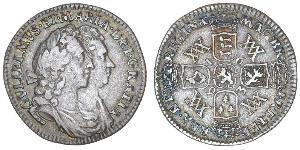
1 Sixpence Reino de Inglaterra (927-1649 ...
grupo tiene 6 monedas / 5 precios
Add coin to this group
2025-05-24
- Historical Coin Prices
2025-05-24
- New coin is added to 1 Ducat Provincias Unidas de los Países Bajos (1581 - 1795) Oro
1 Ducat Provincias Unidas de los Países Bajos (1581 - 1795) Oro
grupo tiene 101 monedas / 99 precios
⇑
1758, Netherlands, Holland. Beautiful Gold Knight Ducat Coin. (XF-AU!) 3.49gm! Mint Year: 1758 State: United Provinces Mint Place: Dordrecht (Holland) Denomination: Gold Knight Ducat Re ...
Usted podría estar interesado en …







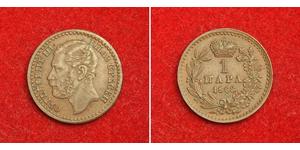


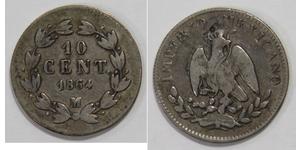
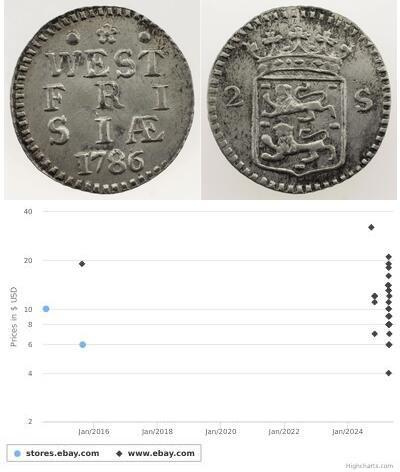
-300-150-iaoKbzbi3hIAAAFPcVgA8IfU.jpg)
